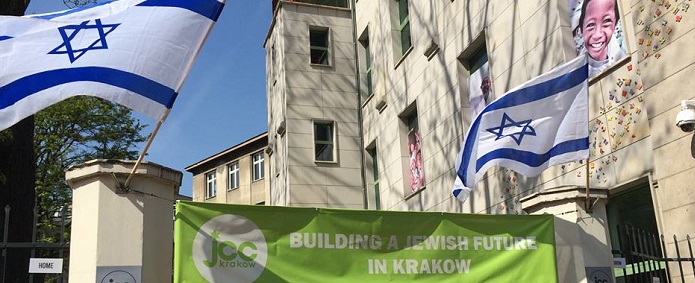Is Poland on your Jewish Bucket List? And why not?
Did you know . . .
Most American and European Jews on the planet can trace their ancestry to Poland?
For nearly 1000 years, Poland was the epicenter of Jewish civilization and culture where Talmudic scholarship grew and Chasidism was born.
By the eve of World War II, Poland had the largest Jewish population in Europe, about 3.3 million people, representing more than a third of the population of many parts of the country, including the capital, Warsaw. Nearly 90% of Polish Jewry — more than three million souls were murdered between September and December 1942 in Nazi death camps. Post-war pogroms and a 1968 purge (the March Events coinciding with Prague Spring) further decimated the population of those who survived.
Statistics produced by the JDC (American Jewish Joint Distribution Committee) and JAFI (the Jewish Agency for Israel) vary from an estimated 25,000 to 100,000 Jews in Poland — though fewer than 10,000 are actually registered as Jewish on Poland’s official government census. Numbers aside, Jewish life in Poland is flourishing once again.
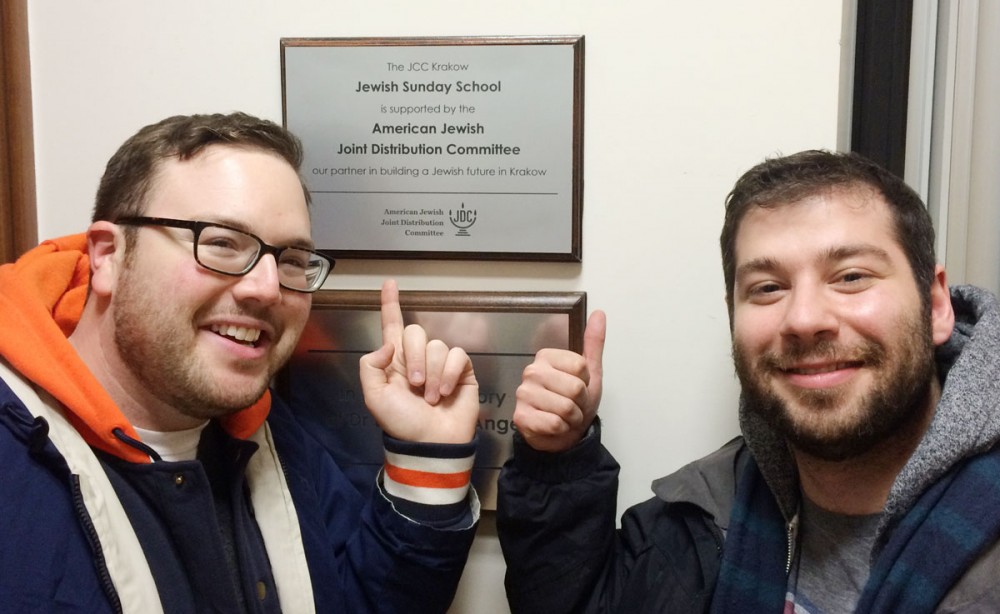
A triumph of history
Though the Jewish people have never come closer to extinction than in the Holocaust, Poland’s post-Communist reawakening has sparked a Jewish renaissance in the country, paying tribute to the rich Jewish heritage that has contributed to its art, history and culture. In Krakow, a city just one hour from Auschwitz and Birkenau where millions of Jews died, millions now visit to connect, share and celebrate the resurgence of Jewish life.
As Jews around the world are discovering, a visit to Krakow can be transformative.
In March, a group of 12 Jewish Detroiters joined young professionals from Chicago, Toronto and St. Louis for an extraordinary opportunity to explore their Jewish roots on a European Heritage trip to Poland and Prague sponsored by Partners Detroit. “We’ve organized many community trips through Partners Detroit before,” observed Rabbi Leiby Burnham, who led the group. “We’ve been to Israel, to Britain, Panama and many different places, but we thought a trip to Poland would be an incredibly powerful experience. Exactly as planned, our visit turned into a powerful personal journey for every participant, reawakening our Jewish sense of self and pride.”
A model of community engagement, Partners Detroit trips are highly subsidized, but designed for a comprehensive learning and leadership development experience before and after travel. Prior to the trip, the group attended four sessions to discuss topics of leadership and to learn about the different sites they were to visit. Upon their return, they are committed to another six sessions to reflect on where they have been. Additionally, each participant is slated for 10 one-on-one sessions with a Partners Detroit rabbi.
“Our group dynamic was very strong and something that put the trip over the top for us,” said Gabe Neistein, Alumni Relations Director at Tamarack Camps and a participant on the trip. “We shared a very powerful and emotional week and had a great wrap-up session on our final night in Prague.”
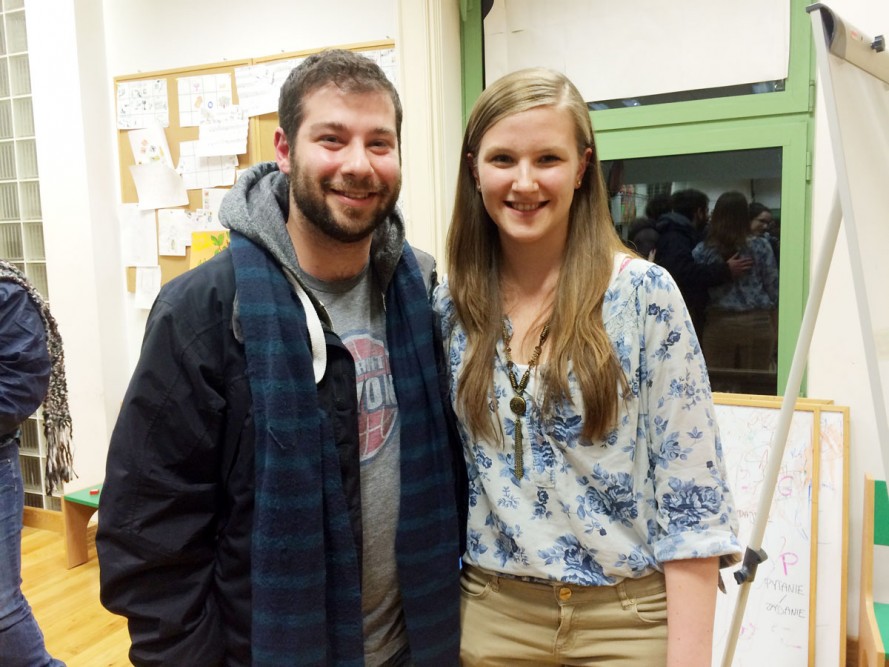
Gabe describes “a particularly emotional day,” touring sites in Poland, including the Krakow Ghetto and a mass gravesite. “Before dinner, our last stop on the tour was the Jewish Community Center of Krakow, where we were very inspired to return to the present day and hear about contemporary life in Krakow and the rebirth of the Jewish community there and throughout Poland.”
In fact, Gabe returned home so jazzed about the JCC Krakow, he initiated a follow-up Skype interview for myJewishDetroit with the Center’s Founder and Executive Director, Jonathan Ornstein and Development Associate, Agnieszka Giś. At the time of the Detroiters’ visit, Jonathan had been in Israel on a JCC-supported tour with Holocaust survivors, many of whom had never set foot on an airplane.
From Queens, NY, Jonathan was in his 20’s when he made Aliyah to Israel. Thirteen years ago, he moved to Krakow, fell in love with the city, teaching Hebrew to university students eager to embrace Jewish culture or their own Jewish roots. Reflecting on his work with the JCC, he said, “I often think about how interconnected we are. And that’s something we see as the whole world passes through Krakow. Because we’re the community nearest Auschwitz, we have a certain perspective on the Holocaust, our Jewish history and identity.”
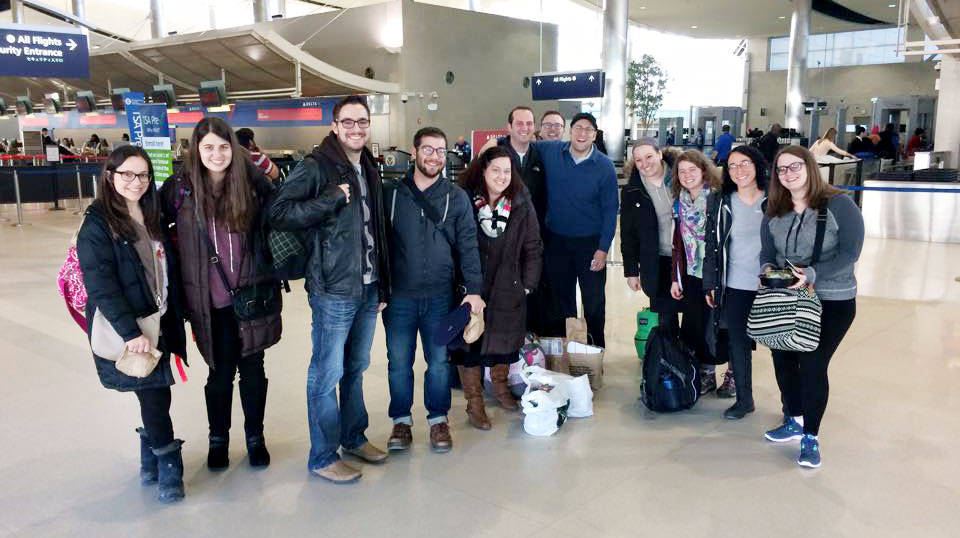
“On the average, 7,000 to 8,000 visitors come through our doors each month. Part of our mission – with groups like Partners Detroit is to show that Poland today is a place of light, a place of hope and optimism—a place where it is easier and safer to be Jewish. And that’s in the darkening Europe we all read so much about today. (As a Jew living in Europe, I would say in general that it’s getting scarier.) But here in Poland, it’s getting easier, safer and better to be Jewish every day.”
“When you think what our people went through, particularly in this community, ours is an incredibly positive story of redemption, of life, of the resilience of the Jewish spirit and the human spirit. Really, we see Krakow as a feel-good place — and we feel that we have the responsibility to tell the story of life — because when you think about it, the story of the Jewish people is never about tragedy, it’s about life, always about moving forward past tragedy.”
Visit online: Given its familiar international logo and a long listing of events and activities, the JCC Krakow appears close to the American model. Opened in 2008 by Prince Charles of Wales, the beautiful four-story facility is located in the heart of the old Jewish quarter where seven pre-war synagogues still stand.
“We’re really a combo of a JCC, a synagogue, a Hillel, a senior activity center and a Jewish visitor center. Those are the many roles we fulfill here in Krakow,” says Jonathan. Though the Center’s 550 members are Jewish or have Jewish roots, many programs are open to the community at large. The Shabbat dinner draws about 70 locals each week.
During the Jewish Cultural Festival in 2014, the JCC Krakow hosted 13,000 visitors and organized a Shabbat celebration for 450 guests — the biggest Shabbat dinner ever held in post-war Poland. The Jewish Cultural Festival, itself, is a phenomenal seven-day event, the largest of its kind in Europe — a “must-see,” drawing tens of thousands of visitors to the city every June.
As the hub of Jewish activity and learning and a one-stop shop for all things Jewish going on in the city, the JCC runs a baby nursery, a Sunday school, a newspaper, a choir, a sports and health facility, workshops and classes of all kinds and clubs for NextGeners, middle-age “Schmoozers,” and Holocaust survivors. Additionally, the JCC offers facilities for seniors with their own dedicated space for yoga, physical rehab, languages, computers and arts and crafts.
Another side of the story . . . where Jewish is cool
When you do the numbers — at events like the Jewish Cultural Festival in Krakow, or among the throngs of visitors at the new POLIN Museum of the History of Polish Jews in Warsaw, it’s clear that the relatively small Jewish community isn’t the only factor driving the Jewish revival in Poland. Jonathan credits “the partnership of rediscovery where Jews and non-Jews alike are really helping to rebuild the community.” After the fall of Communism in 1989, it was a young and mostly Gentile population that first asked the tough questions, wanting to know what happened to the Jews who lived in Poland for centuries.”
“It’s only natural,” says Jonathan, “Young people who once were denied knowledge of their own history are now hungry to learn what happened to their country and what it means to be Polish in the 21st Century. And once they get involved, they see that they have this opportunity — not only to learn, but to act and rebuild our community. On the other hand, there are people only now discovering their Jewish roots, and – because of the welcoming environment – they are choosing to get involved.
As a staff member of the JCC Krakow, Agnieszka shares that she has found her work particularly rewarding. “When I think that Jews and Poles share 1000 years of history, which was cut by the Holocaust and then the Communist regime, and today I’m in this space in history when I can try to rebuild those Polish Jewish relations, I decided to join the volunteers. And here I am, greeting visitors, helping on Jewish holidays, working with seniors and kids. And, by the end of the week, I can join the families here for Shabbat dinner and really feel a part of the community. It’s not just my experience, there are hundreds of other non-Jewish Poles like me, volunteering, cleaning up the cemeteries, taking part in competitions about Jewish culture, helping the community.”
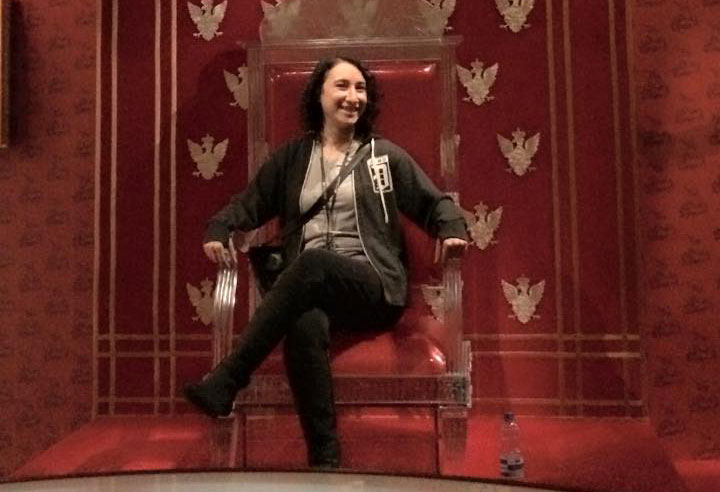
For Sarah Crane, a Senior Associate at KPMG, the Partners Detroit trip was her third visit to Poland. She had visited once in middle school on a March of the Living trip with her family, including her grandfather, who was a Holocaust survivor. She returned as a young professional in 2013 with her sister. Familiar with the Polish language (a skill which proved to be real asset on the most recent trip), Sarah remarked that it was a great opportunity to revisit now with the perspective of an adult with a peer group. “The post trip sessions have been particularly valuable, both from a learning perspective and from the standpoint of continuing our group dynamic. What so often happens with these powerful experiences is that it’s easy to disconnect afterwards. I think by extending our interactions,we may improve our chances of staying close as a cohort and relying on each other as we move forward.”
To read more about the resurgence of the Jewish community of Krakow, visit the JCC Krakow on Facebook or Friends of JCC Krakow.

